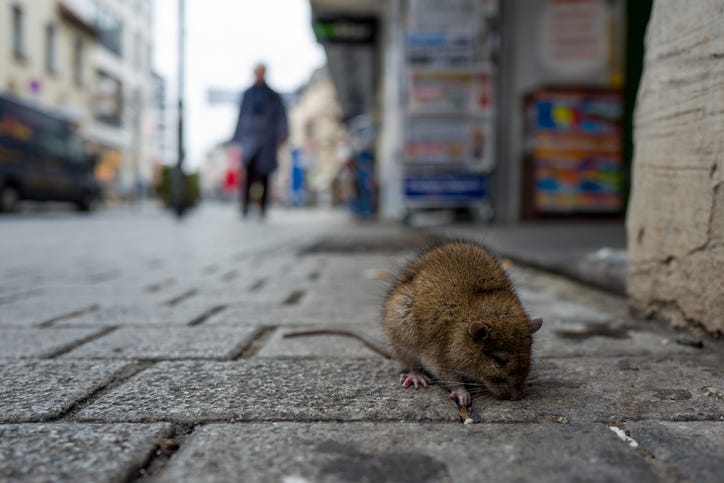
Over the years, the oversized rats that populate New York City's subway and sewage systems have been seen carrying everything from slices of pizza to women's cosmetics.
But a new study reveals they can also carry something far more substantial: the coronavirus and its variants.
In a report published in Thursday's edition of the medical journal mBio, researchers say they've determined that New York's rats are capable of carrying three COVID variants.
While the Centers for Disease Control and Prevention has claimed animal-to-human transmission is very unlikely, the study's lead author says he's not so sure if that's true.
"Our findings highlight the need for further monitoring of SARS-CoV-2 in rat populations to determine if the virus is circulating in the animals and evolving into new strains that could pose a risk to humans," Dr. Henry Wan said in a statement.
For the study, Wan and his associates caught 79 rats in Manhattan and Brooklyn "in and around locations surrounding wastewater systems" during September and November of 2021.
"Most of the rats were trapped in city parks within Brooklyn, although some were captured near buildings outside of park boundaries," said study coauthor Dr. Tom DeLiberto.
The researchers found that the rats were exposed to SARS-CoV-2 and showed a possible link to the variants that were circulating in humans during the early stages of the COVID-19 pandemic. Specifically, 13 of 79 rats (16.5%) tested positive.
While Wan and his associates don't break down the exact numbers, they say the rats were infected by the Alpha, Delta and Omicron subvariants of the coronavirus.
"To the best of our knowledge, this is one of the first studies to show SARS-CoV-2 variants can cause infections in the wild rat populations in a major U.S. urban area," Dr. Wan said. "Overall, our work in this space shows that animals can play a role in pandemics that impact humans, and it's important that we continue to increase our understanding so we can protect both human and animal health."


